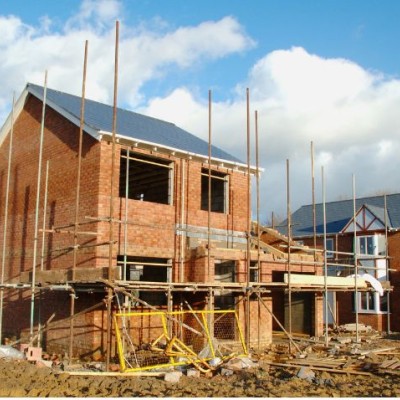16 things a new landlord needs to know before they buy

There is a huge amount to understand about how to let and manage property, but there’s also a lot of work to do before you buy. You have to make sure property is the right investment vehicle for you and choose a property and type of let that’s going to deliver on your financial objectives.
We’ve put together 16 key things every new landlord should know and understand ahead of investing in any rental property. If you need any help answering these questions our experts would be happy to help.
1. What are your investment objectives?
Are you primarily looking for a monthly income from rental profit, or are you more interested in building up equity to get a lump sum return in the future? Do you want an asset you can pass on to your children, or maybe something they can live in themselves in the future? It’s important to be clear on what kind of returns you want, and when.
2. Is property definitely the right investment for you?
Before moving ahead, it’s well worth talking through your plans and objectives with a financial adviser or wealth manager. They can look at all your income and wealth and help make sure property is the best vehicle for achieving your financial objectives. While property can be a great investment, it’s not necessarily right for everyone.

3. Where is best to invest?
Most landlords tend to invest fairly locally – within around 30 minutes of where they live. There’s not necessarily a need to chase ‘hotspots’ as once they are ‘known’ the best growth can already be priced in. The good news is you can find good rental investments all across the country. Just contact your local branch to find out about opportunities in your area.
4. What type of property should you invest in?
This will depend primarily on supply and demand in your local area now and in the future. The important thing to remember is this isn’t about what you personally like or don’t like; it’s about what tenants are looking for and what kind of property will deliver on your financial objectives.
5. What type of tenant and let should I have?
Again, this is mainly down to supply and demand, so speak to qualified agents in your area and carry out some online research to see where the biggest demand is coming from. It will also depend on your objectives, e.g. if a three-bed house will deliver best on your long-term goals, then families looking for unfurnished accommodation could be your target market. But if your focus is on rental income, you could be looking to offer furnished flat or HMO rentals to professionals or students.
6. Costs to buy a rental property
In addition to the deposit, the biggest consideration here is the 3% higher rate stamp duty that applies to any property you buy in addition to your own primary residence – and it’s applied to the whole price of any purchase worth £40,000 or more. So, if you’re buying a rental property for £280,000, the stamp duty due is:
- £1,500 standard rate (£30,000 x 5%)
- £8,400 higher rate (£280,000 x 3%)
- Total: £9,900 – although this can be deducted from any capital gains when you come to sell.

7. Costs to bring it up to lettings standard
There are numerous health and safety considerations that need to be satisfied and the property has to meet certain overall standards in order to be legally let, such as gas and electrical safety checks. The amount you’ll have to spend will obviously depend on the condition of the property, but make sure you’re aware of how much you’ll have to invest before you buy.
8. Costs to let
In addition to any necessary upgrades, refurbishment and furnishing, you need to be aware of all the other costs you’ll incur and expenditure you’ll have to budget for. These include:
- Mortgage payments
- Landlord insurance
- Any local council licensing fees
- Gas and electrical safety checks
- Repairs and maintenance
- Allowance for void periods
You will also be liable for council tax and if the property is empty for a period of time and a second property, this might incur an increased charge, so double check the amount you will pay each month.
9. How to assess/compare financial property returns
Three key figures to calculate and track are:
- Yield: the annual rental income as a percentage of the property’s value. This gives you a gross yield percentage that lets you compare investments to get an idea of how profitable they are.
- Profit: rental income less costs. You should have a monthly and an annual figure – remembering to factor in allowances for voids and larger periodical maintenance works.
- Return on investment (ROI): the annual profit figure as a percentage of the total capital you have invested in the property. You should also factor in any equity growth. This is one of the most important figure for comparing how well buy to let is performing for you, versus if you invested the same amount of money elsewhere.
In addition, if you are investing with 100% cash, you need to take into account that inflation, over time is typically 3% per annum, so you need to factor that into your calculations.
10. Whether to buy as an individual or as a limited company
According to thisismoney.co.uk, there are now more than 615,000 buy-to-let properties owned in UK company structures – that’s up 82% in the last 7 years. One significant reason why some landlords have made this decision is the tax benefit. Our in-branch investment experts are always here to help you decide whether it might be worth taking this route – and if so, we offer a Smart Investment service which can help you form a buy-to-let limited company in just 30 minutes.

11. Whether to let yourself or via an agent
Using an agent to handle the letting and management of your property can take a huge amount of work and responsibility off your hands. Of course, there is a cost to this, but a professional, experienced agent should deliver savings and value at many times over their fee. They will also make sure your property is legally compliant, which takes a lot of stress away from you.
12. Legals
If you are handling the lettings and management yourself, you will need to spend some time and effort understanding your legal responsibilities and obligations – and ensure you have a way of staying up to date with legislative changes. If you fall foul of the law, even unintentionally, the penalties can be severe.
13. Deposits
You need to be aware of the maximum deposit you can take, under the Tenant Fees Act and know how to correctly protect it in a government-approved scheme.
14. Contracts
Every tenancy should have a written agreement, with the most common contract (and the default legal position for private residential tenancies) being an assured shorthold tenancy agreement (AST). You need to be aware of your own and your tenant’s rights and responsibilities and understand what clauses you may or may not be able to change and enforce.
15. How to deal with tenant issues
Whether your tenant simply has queries, falls behind with their rent or is causing problems, you’ve got to be able to handle things professionally and legally. If we fully manage a property for a landlord, we handle tenant issues on their behalf. We also offer Premier Service, which covers legal costs for landlords should a tenant take them to their court, or vice versa.
16. How to deal with evictions
You need to know when and how you can require a tenant to vacate your property, and what you can and can’t do if they refuse to leave. There are very specific steps you need to take if you have to go down the court eviction route because if you get anything wrong, the eviction could be declared invalid.
If you’d like to discuss whether investing is right for you and your options, do contact our local experts and they will be happy to help answer your questions and find the right investment property to meet your investment needs, just get in touch with the team in your local branch.
Looking for advice?
If you're looking to let or sell your property, we can help. Get in touch with your local branch or book in for a property valuation.

Contact Us
Got a question, general enquiry or something else?
You may also like
Since we started in 1987 we have grown to one of the UK’s largest property groups, we can save you time and money by offering a range of services and expertise under one roof.



